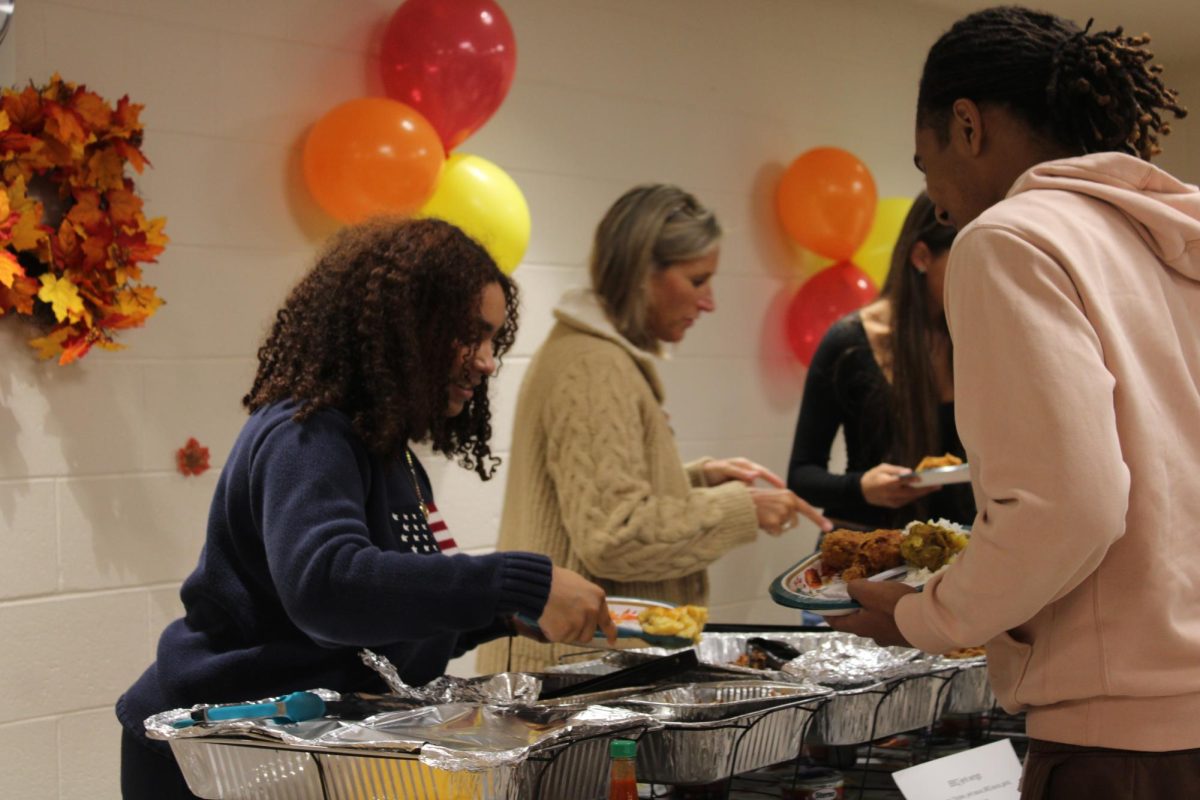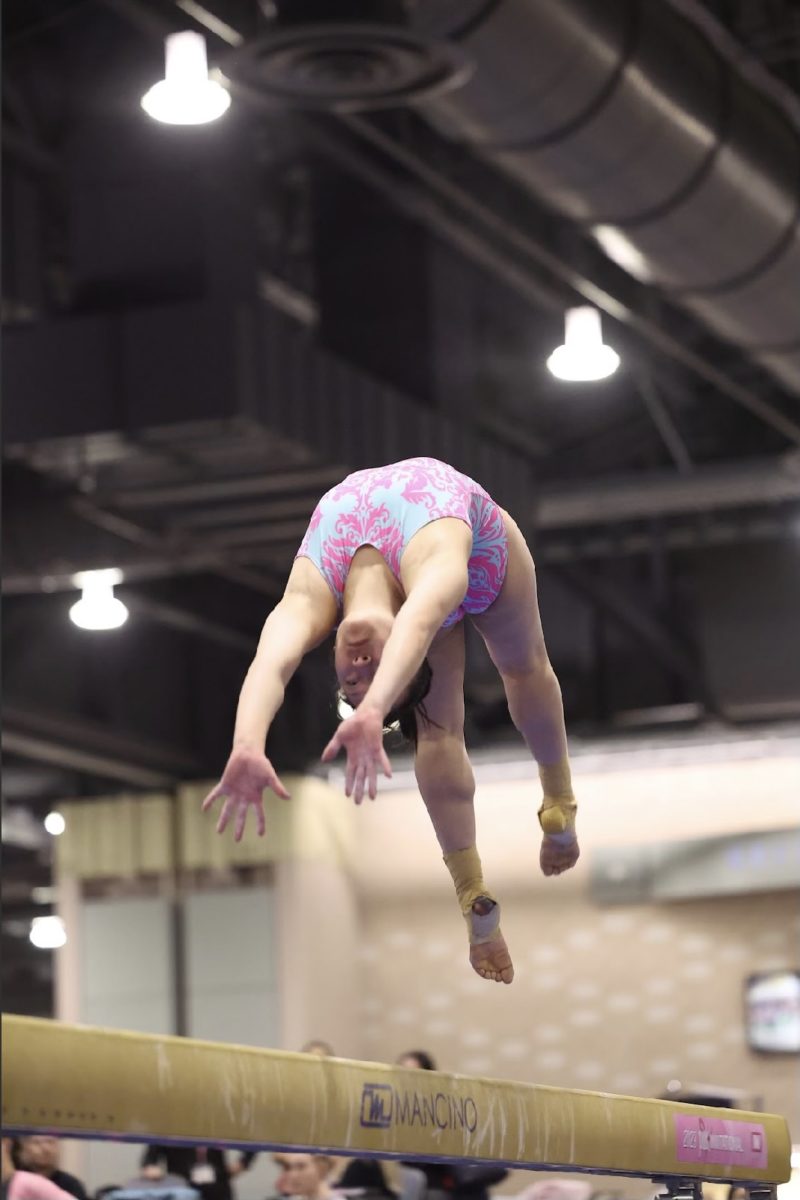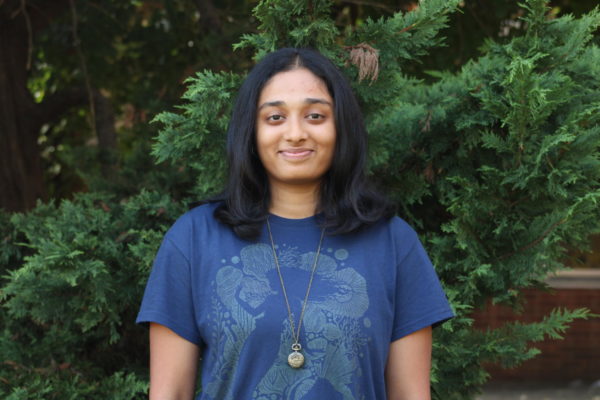By Tanisha Agrawal, Co-Sports Editor
On Aug. 27, watching the U.S. Gymnastics Championships in awe, senior Claire Vanderau and junior Daniella Chavero-Diaz looked on as Simone Biles became the first gymnast to win eight U.S. all-around titles. She gracefully jumped, flipped and tossed her way on the balance beam, uneven bars, vault and floor, clinching the all-around gold and sending ripples of excitement to young gymnasts like Vanderau and Chavero-Diaz.
“She’s the best gymnast out there. I love watching her do gymnastics because I think it’s crazy that she has so much strength and power even after a two-year break,” said Chavero-Diaz, who started gymnastics at the age of 3 and trains for about 30 hours a week.
After a two-year hiatus, Biles made an extraordinary comeback in the U.S. Gymnastics Championships. She took time off after the 2020 Olympics in an effort to work on her mental health and to get married.
“I was really excited for her. She was able to take time for her mental health and then come back. It shows that you can take time for yourself and still be successful,” said Vanderau, who started at the age of 10.
Both gymnasts for over a decade, Vanderau and Chavero-Diaz resonate with Biles, who is an adoptee from a historically underrepresented background. Vanderau, an adoptee herself, believes that Biles’ success has given minority girls someone to look up to and from whom they can seek inspiration.
“It is definitely weird at times because the gymnastics gym that I go to is predominantly white. I’m the only Mexican person at my gym,” Chavero-Diaz said. She said that she seeks solace in knowing that Biles too felt that, coming from a Black background.
Perhaps most importantly, Biles has opened up about the need to balance mental health and success. Vanderau said that gymnasts face the “twisties,” where a disconnect between the body and the mind develops and mental blocks become inevitable.
“Let’s say I’m on the floor and tumbling, and I think I’m gonna do this skill. And I’m thinking about it, but then my body just doesn’t know what to do all of a sudden. A lot of gymnasts have problems with being ‘stuck in the air.’ It’s really like labor; physically and mentally it’s rough. It’s rough on your brain,” Vanderau said.
Both gymnasts said that they have faced mental blocks and that they were stressful. But like Biles, they have learned the importance of embracing time off.
“I’ve had to overcome several mental blocks. When that happens, you have to take a step back, and it’s really challenging for yourself because you feel like there’s nothing you can do about it. It’s really hard to work through it, but when you do, it’s very rewarding,” Chavero-Diaz said.
Hand in hand with the struggles come accomplishments and values that the girls hope to carry lifelong. For Chavero-Diaz, her greatest accomplishment has been sticking to the sport even through the hardest times.
“I feel like gymnastics is such an important part of my life because it’s shaped me into who I am today. It’s taught me hard work, perseverance and determination,” Chavero-Diaz said. “It has helped me manage my time well, because after so much practice, I have to find time in my schedule to keep up with my schoolwork and have a social life.”
While at times life can get overwhelming with mental and physical breakdowns, Vanderau still aspires to compete at the college level. She has previously competed at national competitions and has scored several top 100 scores.
“Most gymnasts retire in their early 20s, and it’s scary,” Vanderau said. “But I also feel like I just love gymnastics so much that it’s fine. I’ll go on.”
Tanisha Agrawal can be reached at [email protected].






















































































